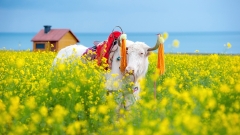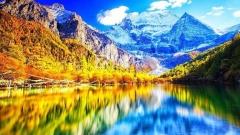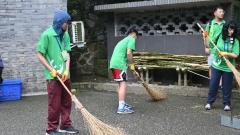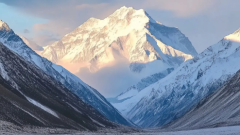Garzê Tibetan Autonomous Prefecture—often called Ganzi—is a captivating region in northwest Sichuan, where snow peaks, deep valleys, sacred monasteries, and vibrant Tibetan culture blend into one striking highland landscape. Many travelers see it as a more accessible alternative to Tibet, yet equally rich in spirituality and scenery. It has become a top destination for adventure, photography, and cultural exploration, offering an unforgettable look into Tibetan life and the beauty of western China.
A Region Where Nature Dominates Everything
Garzê sits on the southeastern edge of the Tibetan Plateau, with an average altitude between 3,000 and 4,000 meters. Here, landscapes unfold on a grand scale:
-
Mount Gongga —the “King of Sichuan Mountains,” rising to 7,556 meters
-
High-altitude grasslands where yaks graze under huge skies
-
Glacial lakes such as Yihun Lhatso and Xinluhai, famous for turquoise waters
-
River gorges carved by the Yalong, Dadu, and Yarlung Tsangpo river systems
-
Snow mountains and ice fields, especially around Kangding, Daocheng, and Litang
Every season brings new scenery: vibrant grasslands in summer, golden valleys in autumn, and snow-covered mountains in winter that feel like a world untouched by time.
Garzê is simply one of China’s most beautiful natural regions—raw, dramatic, and endlessly photogenic.
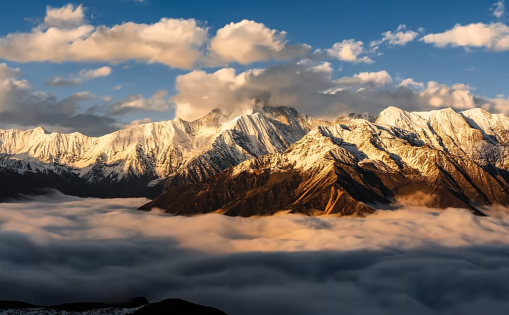
Mount Gongga
A Stronghold of Tibetan Culture
Garzê is culturally Tibetan in every sense: language, religion, food, architecture, and lifestyle. It is home to several Tibetan subgroups including Kham Tibetans, known historically for their bravery, independence, and artistic traditions.
Daily life revolves around:
-
Monasteries—large and small, influencing education, rituals, and community events
-
Nomadic culture—families herding yaks on the plateau
-
Festivals—horse-racing events, Butter Lamp Festival, pilgrimage rituals
-
Traditional crafts—thangka painting, horn carving, Tibetan opera
Visitors often say that Garzê feels like stepping into “old Tibet”—a region where traditions remain alive and deeply rooted.
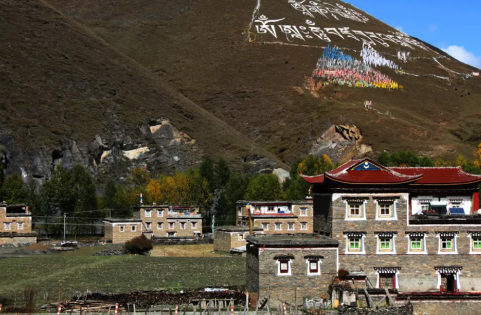
Tibetan houses in Ganzi
Monasteries: Heart of the Local Spiritual World
Dozens of important Tibetan Buddhist monasteries lie across Garzê, offering travelers insight into both religion and community life. Notable sites include:
-
Larung Gar Buddhist Academy (Seda) – the world’s largest Buddhist academy
-
Yarchen Gar (Yaqing Si) – one of the largest nunneries in Tibet
-
Litang Monastery – birthplace of several Dalai Lamas
-
Tagong Monastery – a sacred temple of the Karma Kagyu lineage
-
Dzogchen Monastery – a principal center of Nyingma teachings
Some monasteries welcome visitors to witness chanting sessions, sky-burial sites (from respectful viewpoints), and traditional festivals.
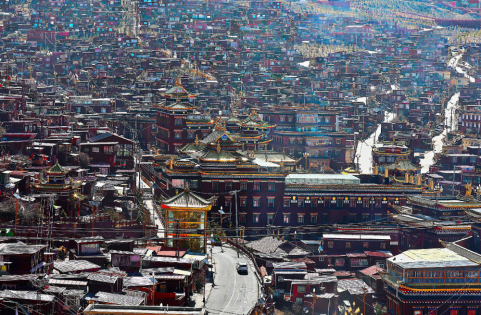
Larung Gar Buddhist Academy
Charming Tibetan Towns and Villages
Garzê is filled with picturesque towns that feel worlds apart from modern China. Each offers its own character:
Kangding
The gateway to Garzê, famous for its love songs, tea houses, and dramatic mountains.
Tagong
Known for its vast grasslands, horseback riding, and sacred temples.
Danba
Home to Jiaju and Zhonglu villages—famous for watchtowers, wooden houses, and Jiarong Tibetan culture.
Litang
One of the world’s highest towns, birthplace of the 7th Dalai Lama, known for its horse-racing festival.
Daocheng–Yading
A high-altitude paradise with sacred snow mountains, crystal lakes, and China’s most beautiful trekking routes.
Dege
The cultural heart of Kham, famous for Dege Printing House, where scriptures have been printed for 300 years.
These destinations together form one of China’s richest cultural landscapes.
Adventure and Outdoor Paradise
Garzê is a dream for hikers, cyclists, and photographers. Its terrain is diverse enough for all types of adventures:
-
High-altitude trekking in Yading Nature Reserve
-
Cycling the Sichuan–Tibet Highway (G318)
-
Horseback riding on the Tagong Grasslands
-
Glacier exploration at Hailuogou and Yala Snow Mountain
-
Camping and stargazing in remote valleys
Because of its altitude and wilderness, the region still feels wild and untouched—a rare quality in modern tourism.
Unique Local Cuisine
Garzê offers a mix of Tibetan flavors and Sichuan influences. Travelers can expect:
-
Tibetan staples: tsampa, yak meat, yak yogurt, butter tea
-
Sichuan dishes with a high-altitude twist
-
Nomadic-style hotpot using yak bone broth
-
Barley wine (chang), a popular local beverage
Food here is hearty and warming—perfect for the cold mountain climate.
Travel Conditions: What Visitors Should Know
Garzê is incredibly rewarding but requires some preparation.
- Altitude: Many areas exceed 3,500 meters. Travelers should acclimatize slowly, stay hydrated, and avoid strenuous activity on the first day.
- Transportation: Roads are long and winding. Driving distances can be large, but the scenery makes the journey worthwhile.
- Weather: Unpredictable. Even in summer, nights can drop below freezing in high-altitude areas.
- Respect Local Customs: Tibetan culture is deeply spiritual. Visitors should dress modestly, avoid touching sacred objects, and ask before photographing people.
Who Should Visit Garzê?
Garzê is ideal for:
-
Nature lovers
-
Cultural travelers
-
Photographers
-
Backpackers
-
Road trip enthusiasts
-
Trekking and adventure seekers
It’s less suitable for travelers wanting big cities or luxury conveniences—but perfect for those seeking authenticity and breathtaking beauty.
Conclusion: A Place Where Nature, Culture, and Spirituality Meet
Garzê is not just a travel destination—it’s an experience. From towering snow mountains and turquoise lakes to ancient monasteries and warm Tibetan hospitality, the region offers a depth and richness unmatched in most of China. It is a land where the modern world feels distant, where traditions continue with pride, and where the landscape itself inspires awe at every turn. Whether you come for adventure, culture, or quiet reflection, Garzê leaves a lasting impression—one that calls travelers to return again and again.



